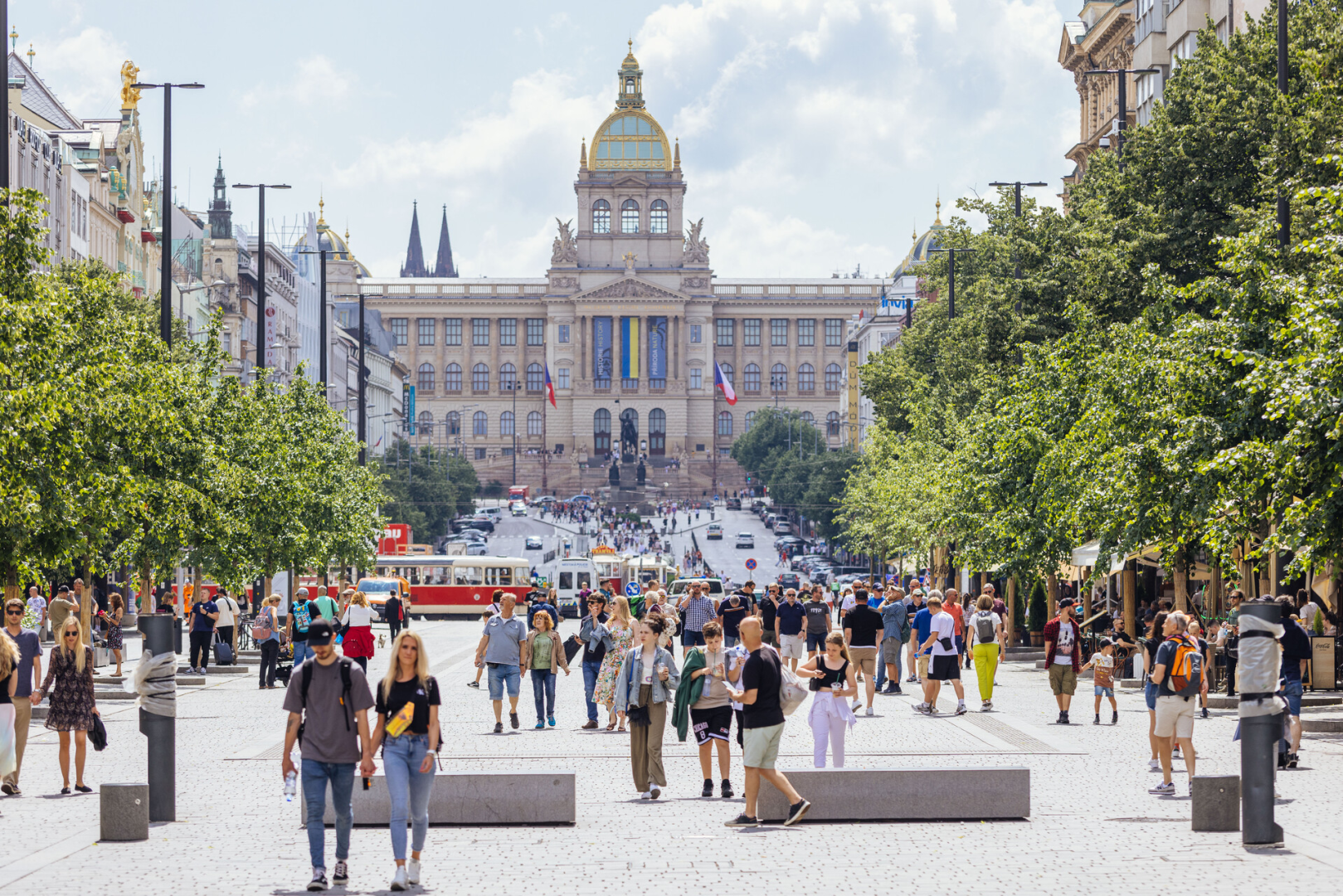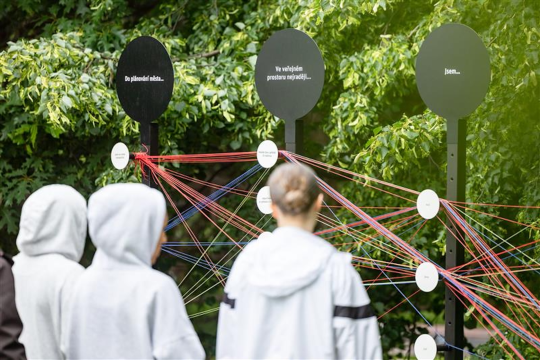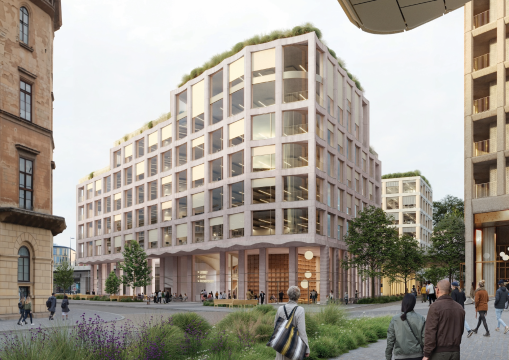The number of foreigners in Prague continues to rise, with the majority coming from Eastern Europe. They play a crucial role in the city's workforce.
How many foreigners will live in Prague by 2050? According to a new analysis by the Prague Institute of Planning and Development (IPR Prague), the number of foreigners living in Prague has been steadily increasing over the years. Between 2001 and 2022, this number rose from 61,000 to 345,000. Without this influx of foreigners, Prague's population would have stagnated or even slightly declined. These foreign residents, who are largely of working age, are a crucial source of labor for the city, preventing a potential shortage of human resources.

The proportion of foreigners in Prague significantly exceeds the national average. The 345,000 foreigners residing in the Czech Republic’s most populous city make up almost 40 percent of all foreigners in the country. Most of these residents hail from Ukraine, Slovakia, and Russia, with a significant number also from Vietnam. Additionally, the number of people moving to Prague from Romania, Bulgaria, India, and the Philippines has been steadily increasing.
"Prague has always been a crossroads of cultures, thanks to its geographical location and history. It's a city where foreigners have lived and worked, contributing to the natural exchange of knowledge and urban development. We can look back to the example of Charles IV, who, when founding the New Town, invited Italian craftsmen from Florence to settle here. Today’s situation is similar. Prague is a successful cosmopolitan city, attracting new residents with job opportunities and a high quality of life, much like other thriving European cities," says Petr Hlaváček, Prague's Deputy Mayor for Territorial and Strategic Planning.
"The City of Prague has long pursued an active policy of integrating foreigners, with a particular focus on supporting Ukrainian refugees since the outbreak of Russian aggression in Ukraine in 2022. To facilitate the integration of foreigners into Czech society, Prague collaborates with municipal districts and non-profit organizations. Together, they strive to create a welcoming environment for integration and highlight the benefits that migration brings to the city. I am pleased that our policy also emphasizes fostering close ties between the local population and foreign residents," adds Jiří Pospíšil, Prague's Deputy Mayor for Culture, Tourism, National Minorities, Heritage Protection, Exhibition, and Animal Welfare.
The Current Situation in European Cities
Similar growth in the number of foreigners can be observed in other European cities, where they are taking advantage of job opportunities that the local population might overlook. Sectors like construction, accommodation, cleaning services, and hospitality rely heavily on foreign labor. Conversely, many foreigners are also employed in highly skilled professions, particularly in management and IT.
"The growing number of foreigners presents one of the main challenges for today’s cities. In Prague, where the average age of the Czech population is 44, foreigners, with an average age of 40, are significantly rejuvenating the city and providing a valuable workforce. However, we must also consider the increasing number of foreign-born children, which necessitates careful planning to meet their needs in school facilities. That’s why we continuously monitor population forecasts, including those of the foreign population, so that the city can prepare for future developments and avoid potential issues," says Ondřej Boháč, Director of IPR Prague.
Prague in 2050
Despite nearly zero unemployment in the capital, tens of thousands of job vacancies remain unfilled. The demand for new labor is reflected in the increasing number of foreigners arriving in the city, and it is likely that this gradual growth trend will continue. Although the growth rate is expected to slow, the number of foreigners in Prague is projected to rise to between 598,000 and 920,000 by 2050.
Despite the clear economic benefits, sociological surveys indicate that the Czech public remains hesitant about the arrival of more foreigners. These attitudes have remained relatively consistent over time, even when it comes to accepting refugees.
However, Prague is well-prepared for the anticipated increase in foreign residents. The city has developed the Prague Metropolitan Area Concept, which includes a plan for the integration of foreigners. This plan, regularly updated and overseen by the Department of National Minorities and Foreigners at Prague City Hall, includes an Action Plan for Integration. One key initiative is the promotion of intercultural work, which helps to overcome socio-cultural and linguistic barriers. These efforts are led by the Integration Centre Prague (ICP), a non-profit organization established by the city, along with other non-profit organizations.
The ICP plays a crucial role in raising awareness, fostering independence, and promoting the self-sufficiency of foreigners. Through these services, foreigners and refugees can integrate more quickly, easily, and effectively into Czech society. The ICP also supports local governments in their integration efforts and assists schools, labor offices, and healthcare facilities in accessing and communicating with foreigners.
Prague actively secures funding from national and international sources to bolster integration activities and infrastructure. The city is also involved in international projects, which allow for the sharing of experiences among European cities and the transfer of best practices and current integration trends to our capital.
The full document, "Foreigners in Prague - Analysis and Forecast of Development," can be found here (CZ only).
Mohlo by Vás také zajímat

DEVADE: Architektura Prahy mezi přísností a diskotékou. Nová kniha a výstava v CAMPu mapují město v éře devadesátek

Pražany baví participační hra. V roce 2025 se do projektu Tvoje město, Tvůj prostor zapojily skoro tři stovky návštěvníků

